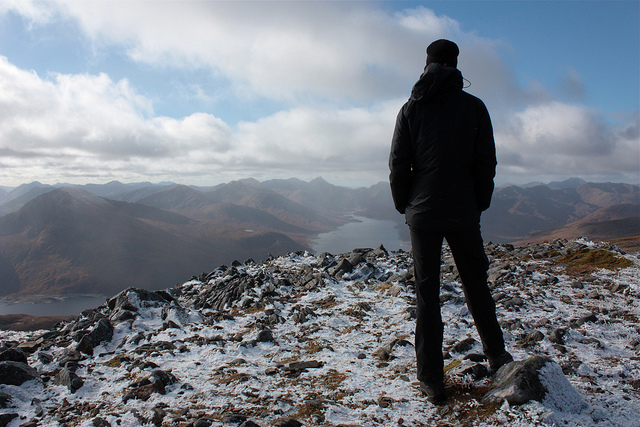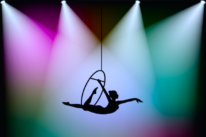
“Your actions are your only true belongings.” ~Allan Lokos
I’d bet I’m not the only one who browses through the quotes section of Tiny Buddha when its time for a pick-me-up or a little bit of a calming down.
As I’m writing this, the quote above is particularly pertinent. I found out an hour ago that someone has hit my car for the second time this year—in the same parking lot as the last accident.
I’m pretty upset, and between waiting to file the police report and being on hold with the insurance, a little bit of comfort reading made sense.
I know this quote. Really, really know it. It’s part of the liturgy from my old sangha, from before I moved to a small town where there isn’t such a thing.
My actions are my only true belongings. In the liturgy it’s followed by the logical next step: I cannot escape the consequences of my actions.
And the final line always made me want to shout out loud, to proclaim it from the rooftops: My actions are the ground on which I stand.
This is where I make my stand. On the ground of my actions.
Whatever my thoughts are, however my mind drifts, that’s okay. I don’t have to worry about being perfect at meditation, about having a clear, peaceful mind.
I’m a terrible mediator. Thoughts flow in and out of my mind. It doesn’t take but a minute of silence before I’m thinking about tonight’s dinner and wondering what I need to get from the store.
I’m not particularly skilled in the other paths. Right speech is an ongoing challenge.
There’s something liberating in not having to worry about always being in control of my slippery, wandering mind. Thought is hard to corral, hard to train.
Action is a bit different.
That’s something you can get a handle on. You don’t have to worry too much about shades of grey with actions. You did it, or you didn’t.
It’s not about intention, or thoughts, or feelings. It’s about actions. What you actually do.
I cannot escape the consequences of my actions.
We’ve all learned about consequences from the time we were five. Somewhere along the way we stole a cookie or lied about breaking something or made up some random fib and were grounded. Consequences are something we may not like, but we understand.
My actions, and the consequences of my actions, are my only true belongings.
Even if I’m angry, what actions do I want to own at the end of today? I could yell and scream about this. I could go off on a rant at the guy who hit my car, if we can find him.
I’m still upset. But I don’t want to own those actions. I don’t want to own those consequences.
So instead, I’d rather think about other ways to make sure that at the end of every day, I don’t have to look back with regrets.
- Know what your core values are. Without knowing what’s important to you, how can you know which actions to take?
- Be mindful of what you’re doing. It’s too easy to drift through the days without making conscious decisions, and then wonder how you ended up in a situation.
- Cultivate relationships with people who will let you know when you’ve gone astray. They don’t have to be honest about how you look in those pants, but you want friends who will tell you when you’re about to do something rash.
- Consider optimism as a primary mode of operation. You don’t have to be a Pollyanna, but looking for the bright side of things, or even the brighter side of things, can pick you up out of a hole. And the more you practice, the faster it is to get yourself back on track.
- Take time for yourself. When we’re hungry, angry, and tired, we’ve all made wacky decisions we’ve regretted later. Give yourself time for reflection, for replenishment.
- Don’t judge yourself based on your thoughts. Life is hard enough. If you can keep from acting on those thoughts, some days that’s just good enough.
What actions you would want to make up the ground on which you stand? And what’s keeping you from taking those actions?
Photo by Nick Bramhall
About Corie Weaver
Corie Weaver works with people exploring purposeful productivity at The Missing Piece and writes about experiments with happiness at Honey and Toast.













 Though I run this site, it is not mine. It's ours. It's not about me. It's about us. Your stories and your wisdom are just as meaningful as mine.
Though I run this site, it is not mine. It's ours. It's not about me. It's about us. Your stories and your wisdom are just as meaningful as mine. 